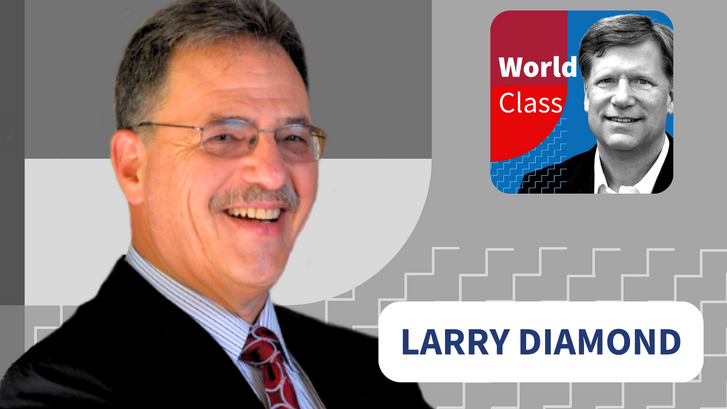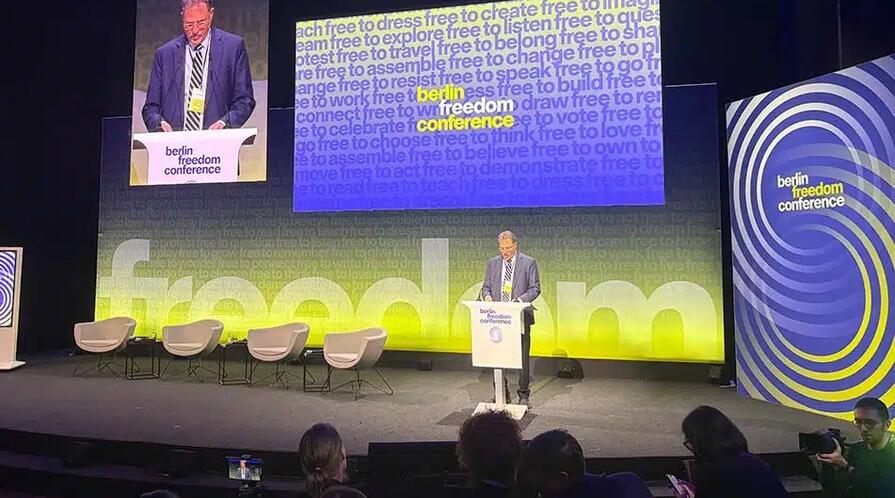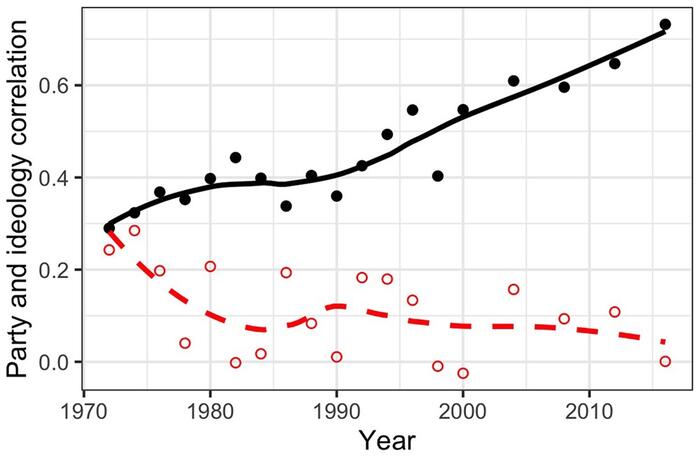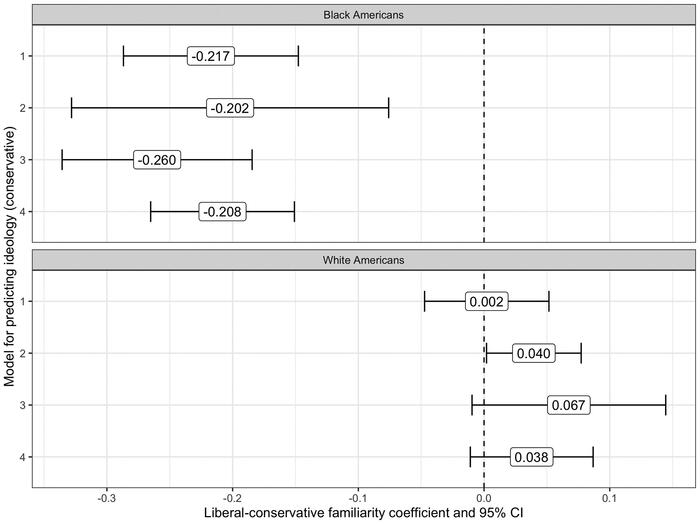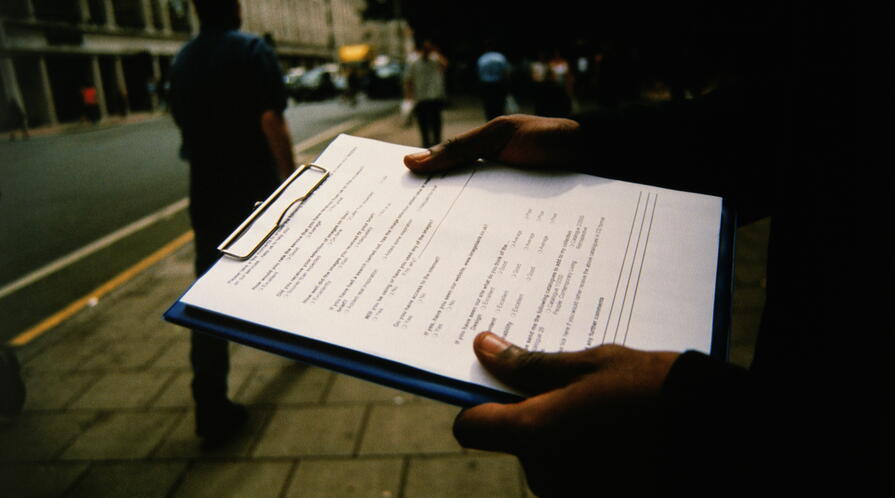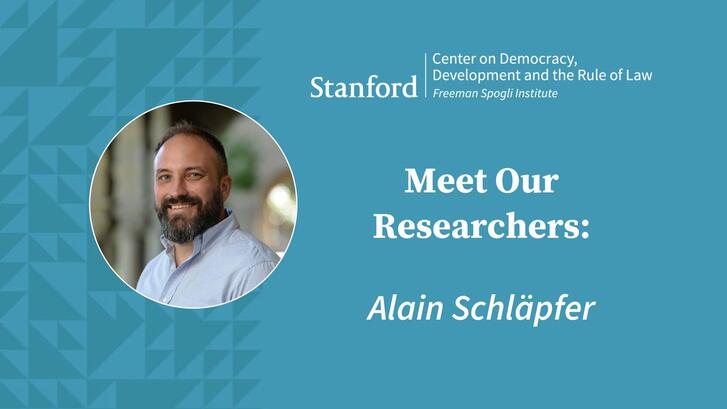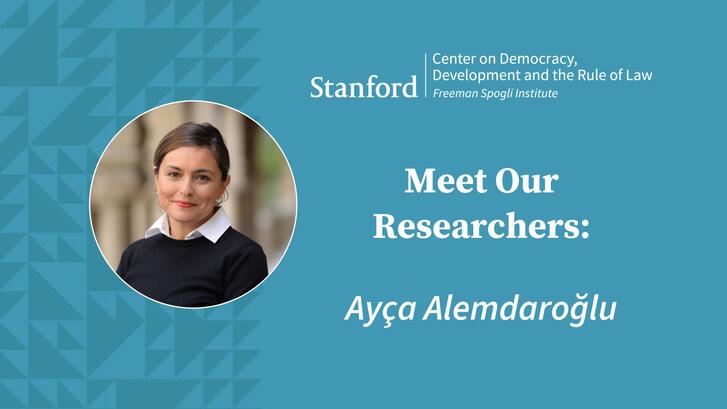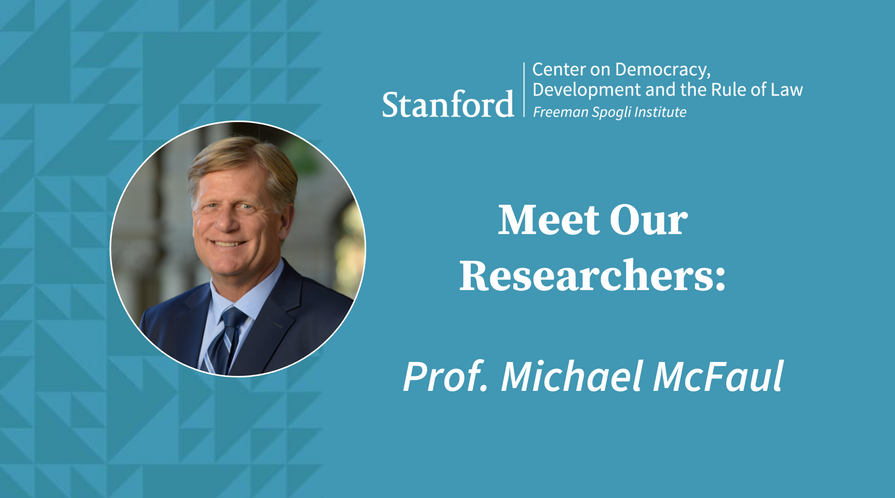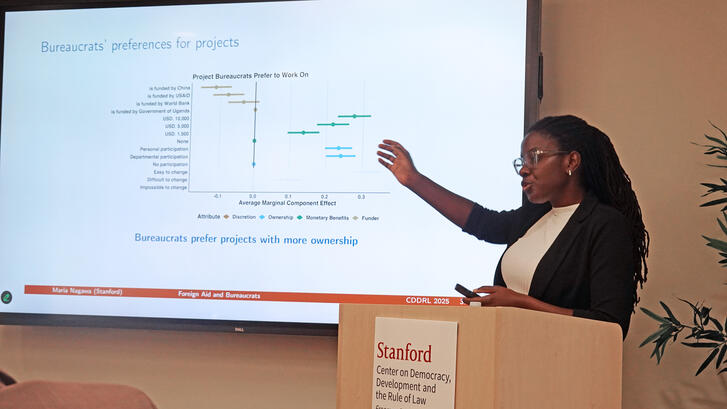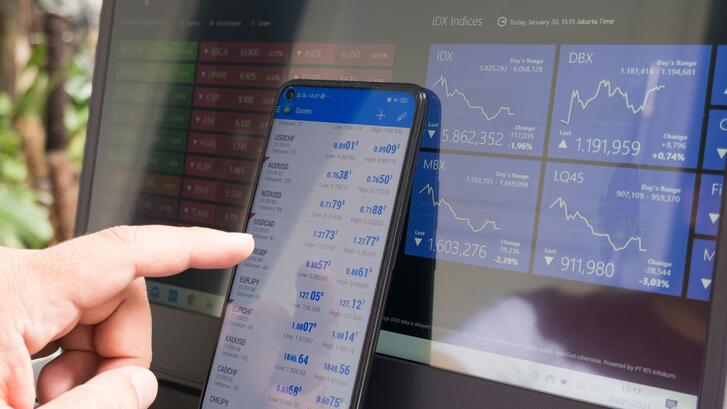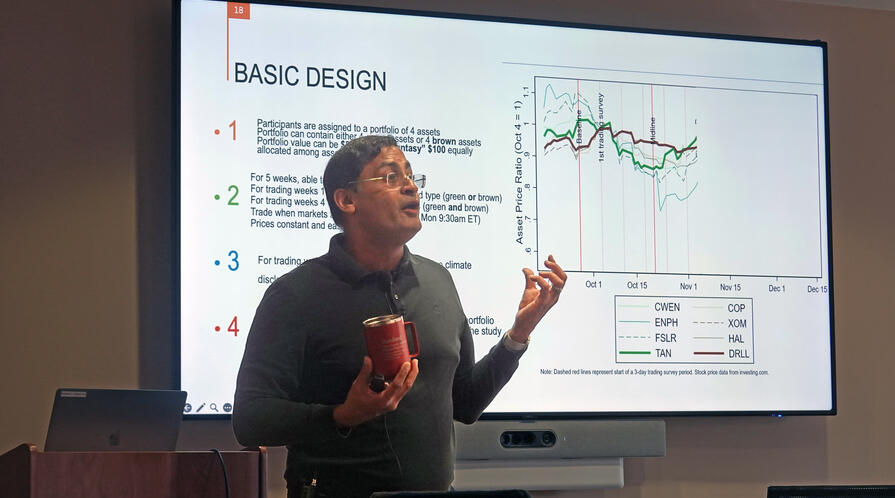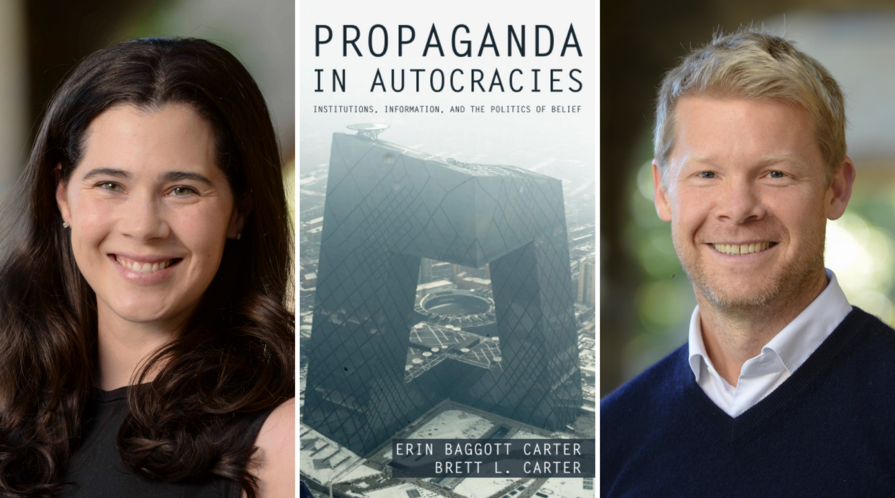Motivation & Overview:
Black Americans have long and overwhelmingly supported the Democratic Party, though Donald Trump modestly increased his share of the Black vote in 2024 (15%, up from 8% in 2020). Given this enduring partisan loyalty — and the fact that Democrats generally take more liberal policy positions than Republicans — we might expect a strong overlap between Black Americans’ partisanship and their ideological self-identification. Yet, according to national surveys, up to 50 percent of Black Americans describe themselves as conservative, a pattern many social scientists have treated as paradoxical.
In “The curious case of Black ‘conservatives’,” Hakeem Jefferson shows that the terms ‘liberal’ and ‘conservative’ are unfamiliar to many Black Americans. Constructing a “Liberal-Conservative Familiarity Scale,” Jefferson finds that Black Americans who are familiar with these ideological labels overwhelmingly identify as liberal Democrats. As such, the canonical liberal-conservative measure — used not only in the American National Election Studies (ANES) but also throughout the social sciences — may be ill-suited to understanding Black political behavior. Jefferson calls on researchers to describe ideological concepts more carefully to respondents and to develop new measures that better capture Black Americans’ political worldviews.
Prior Research & Jefferson’s Intervention:
Political scientists and other researchers and practitioners have long accepted that the “mismatch” between Black voting behavior (or partisanship) and ideology is real. Some explain this by pointing to the strength of Black racial identity or consciousness: Black conservatives, they argue, are indeed conservative but support Democrats because of a shared commitment to racial progress. Others suggest that Black conservatives who might otherwise support Republicans refrain from doing so because of social costs within their communities. And indeed, experimental research has shown that Black participants are less likely to donate to Republican campaigns if they believe that members of their community will learn of such contributions. Still others emphasize that many Black Americans hold conservative views on social or moral issues, such that their identification as conservative on surveys may reflect those views, which do not necessarily inform their Democratic partisanship and thus help explain the partisanship-ideology mismatch.
Jefferson acknowledges that there are indeed Black conservatives and that Black Americans who wish to ‘defect’ to the Republican Party may fear the social consequences of doing so. However, he argues that these explanations fall short of accounting for the long-standing mismatch between partisanship and ideology among Black Americans, and that the prevalence of Black conservative Democrats has been dramatically overstated. His argument begins with a striking observation: in 2012, 30 percent rated Barack Obama as conservative and 9 percent said they did not know where to place him ideologically. Conversely, 29 percent rated Mitt Romney as liberal, while 12 percent said they did not know. These patterns suggest that many Black respondents may have less familiarity with ideological concepts than is often assumed. Political scientists, dating back to the 1960s, have cautioned that few Americans, across racial groups, think about politics in abstract ideological terms. That the liberal-conservative measure remains so central to research on public opinion suggests that these early warnings have largely gone unheeded.
Data & Methods:
Jefferson begins by examining the relationship between partisanship and ideological self-identification over time and across racial groups. From 1972 to 2016, the average correlation between these two measures was .44 for White Americans, compared to just .12 for Black Americans. In 2016, the correlations were .73 and .001, respectively! In other words, among Black Americans, partisanship and ideology were almost wholly unrelated..
As shown below, the correlation between partisanship and ideology among White Americans has increased sharply over the past five decades, reflecting the broader ideological sorting of the major parties since the 1960s. By contrast, among Black Americans, the relationship has remained weak and, if anything, has slightly declined over time.
Figure 1. Correlation between ideology and partisanship over time, by race, ANES 1972–2016. Figure 1 displays the correlation coefficient (r) between ideology and partisanship in the ANES over time. The red open dots indicate the r for Black Americans. The black closed dots indicate that for whites. LOESS lines are overlaid in black for white Americans and dashed red for Black Americans.
In addition, Jefferson notes that in 2012, 41 percent of Black respondents who were asked to identify their political ideology answered “don’t know,” while 18 percent placed themselves at the midpoint. In total, roughly 60 percent of Black respondents declined to take a clear ideological position. By contrast, only 19 percent of White respondents said “don’t know,” and 24 percent identified as moderate.
To further explore these patterns, Jefferson constructs a five-item Liberal-Conservative (L-C) Familiarity Scale based on whether respondents correctly identified Democrats and Democratic presidential nominees as liberal, Republicans and Republican nominees as conservative, and the Republican Party as the more conservative political party. Respondents who answered all items correctly, demonstrating perfect ideological familiarity. Jefferson finds that the scale exhibits high internal consistency.
The L-C Familiarity Scale serves as Jefferson’s key independent variable, which he theorizes influences how strongly people’s ideological self-placement aligns with their partisan identification. Consistent with this expectation, Black respondents with greater ideological familiarity are more likely to exhibit coherent alignments between ideology and partisanship. As the figure below shows, among Black respondents, higher liberal-conservative familiarity is associated with a lower likelihood of identifying as conservative. In other words, Black respondents who more accurately recognize which parties and candidates are liberal or conservative tend to place themselves further to the left on the ideological scale, where we would expect them to be, given their longstanding support for the Democratic Party. Conversely, Black respondents who identify as conservative and who have a clearer grasp of ideological terms are more likely to identify as Republicans, suggesting that ideological familiarity helps resolve the apparent paradox that has long puzzled political scientists and other researchers.
Figure 3. Liberal-conservative familiarity scores predict ideological identification for Black Americans (top plot), but not white Americans (bottom plot). X-axis presents liberal-conservative familiarity score and the corresponding 95th percent confidence interval. Y-axis indicates the model for predicting ideology (conservative), faceted by race. Model 1 includes controls for age, income, education, gender, economic policy attitudes, social policy attitudes, religiosity, and moral traditionalism. Model 2 includes all of model 1’s variables and feeling thermometers toward Black Americans, white Americans, big business, unions, Hispanics, middle class, and gays and lesbians. Model 3 includes all of model 2’s variables and four averaged questions for office recognition. Model 4 includes all of model 2’s variables and three averaged questions for office recognition. Model 1 includes years 1992, 1994, 1996, 2004, 2008, 2012, and 2016; Model 2 includes 2004, 2008, 2012, and 2016; Model 3 includes 2012; Model 4 includes 2004, 2008, 2012, and 2016. Models 1, 2, and 4 include year-fixed effects. Standard errors are robust SE (HC1) and clustered by year when applicable.
White respondents demonstrate much greater familiarity with ideological concepts, yet this familiarity does not predict their ideological self-identification, as it does for Black respondents. Instead, White ideological self-placement is more closely tied to public policy and symbolic issues, such as government involvement in the economy or attitudes toward demographic change.
These results hold even after Jefferson controls for social conservatism (e.g., religiosity), which some have argued helps explain the partisanship-ideology mismatch among Black Americans. They also persist when he controls for the interviewer’s race, addressing the alternative explanation that Black respondents may understate their Republican partisanship to avoid social sanction within their communities.
Findings & Mechanisms:
Jefferson concludes by offering several possibilities for why Black Americans exhibit lower levels of liberal-conservative familiarity. One possibility is that Black and White Americans inhabit different “racialized informational environments.” Political discourse in Black communities may focus more on concrete issues such as racial inequality and systemic injustice, while discourse in White communities may more often invoke ideological labels like “liberal” and “conservative.” Another explanation builds on the idea that the Democratic Party — with which most Black Americans identify — is itself less oriented around ideology and more around social groups and issue bundles, whereas the Republican Party is more explicitly ideological. This may lead to less exposure to ideological terms among Black Americans.
*Research-in-Brief prepared by Adam Fefer.


